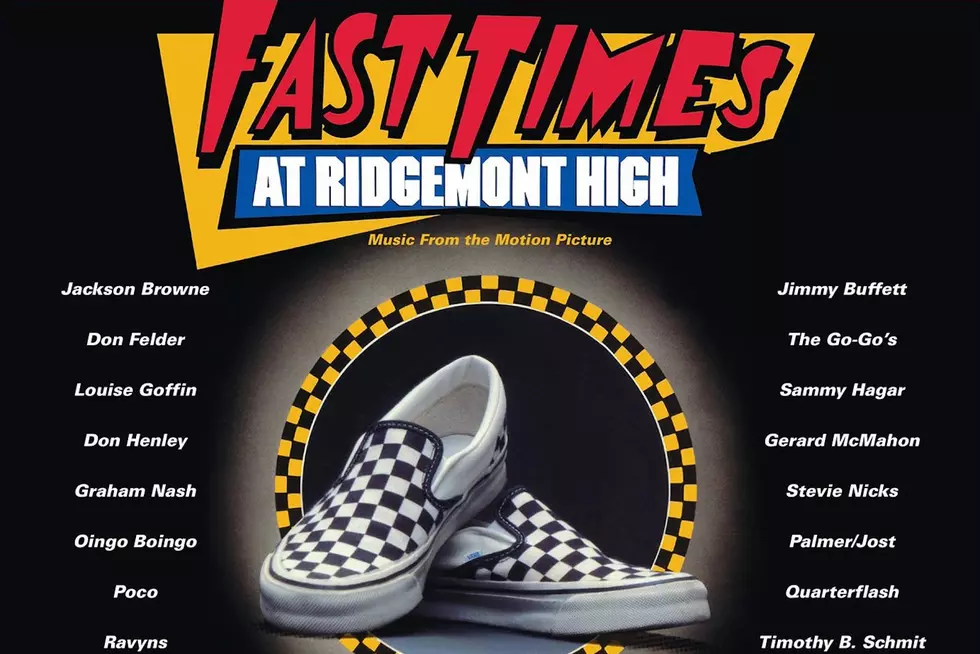
40 Years Ago: Michael Keaton Becomes a Star in ‘Night Shift’
Happy Days was in its waning years by 1982, but for much of America, Henry Winkler was still the Fonz, that cozily nostalgic sitcom’s impossibly cool and effortlessly womanizing icon. And while he’d left the series a few years earlier, former child star Ron Howard was still identified with Happy Days’ onetime lead, the freckle-faced, Midwestern nice guy Richie Cunningham.
So the release of 1982’s Night Shift, directed by Howard and starring Winkler as a mild-mannered New York morgue attendant turned unlikely pimp to a photogenic gaggle of prostitutes seemed like a vehicle for both former costars to switch up their perceived images. Howard, who’d directed only one, rough-and-tumble theatrical feature by that point - 1977’s Roger Corman exploitation quickie Grand Theft Auto - was making his first studio film, an R-rated comedy about hookers, no less. And Winkler was stretching himself as an exaggerated version of an all-around sweet guy much closer to the actor’s true and enduring reputation as one of the nicest people Hollywood’s ever seen.
And Night Shift accomplished both goals just fine, with the film’s modest but undeniable box office success ($21 million on an $8 million budget for Warner Bros.) earning the young Howard a place as studio director, while Winkler broke typecasting to audition for future non-Fonz roles.
But none of that accounts for why people still seek out Night Shift after all these years. That’s because Howard’s modestly naughty, knockabout comedy marked the big-screen breakout of Michael Keaton.
Keaton, who’d go on to become one of the '80s' most bankable comic leads (before winning over skeptical fanboys as Tim Burton’s Batman and emerging as an eventual Oscar nominee) was a former stand-up comic and sitcom actor, with only one minor big-screen role under his belt when he was cast as Night Shift’s Bill “Billy Blaze” Blazejowski. A self-proclaimed “idea man” constantly brainstorming can’t-miss innovations into a handheld tape recorder (edible paper, microwavable clothes), Billy Blaze was the role that finally allowed Keaton to properly channel his live-wire, improvisational comic persona. Deprived of good writing and/or a skilled director, the young Keaton’s undisciplined comic brilliance could come across as unfocused and flailing. But Billy Blaze’s motormouthed mix of obnoxious and unfounded self-regard and guileless vulnerability was pitched right to Keaton’s wheelhouse.
As an early-'80s comedy, Night Shift is a competent — if pedestrian — piece of faux-risque fluff. As former stockbroker turned sedately sheepish morgue attendant Chuck Lumley, Winkler is the sort of nebbish who’ll never send back an incorrect lunch order, confront a neighbor’s menacing dog or be able to cope with rush-hour subway traffic without being smooshed against plexiglass by the bustling crowd. In playing an anti-Fonzie, Winkler makes the put-upon Chuck so helpless among the film’s cartoonishly gritty New York City that it seems impossible he hasn’t been eaten alive by the time new co-worker Blaze shows up.
Entering Chuck’s dull but stress-averse life of infrequent morgue duties to a boisterous a cappella chorus of “Jumpin’ Jack Flash,” Keaton’s Billy is the sort of always-jabbering, self-involved man-child whose running commentary to the flummoxed Chuck is only halted at his first sight of one of the morgue’s open drawers. “Hey, that guy’s dead,” Billy pulls up short, Keaton’s bravura entrance piling up like a derailed freight train.
But nothing can keep the irrepressible Billy from turning Chuck’s life upside down, his side business renting out as a limo/hearse driver to horny teens disrupting Chuck’s sole desire of a safe and sensible job that won’t make his hair fall out from stress. And that’s before Billy comes up with Night Shift’s high-concept big idea of becoming pimps (or “love brokers” as Billy immediately rebrands them) to a group of local sex workers, including a pre-Cheers Shelley Long as Chuck’s savvy call-girl neighbor Belinda.
No '80s, New York-set, crime-adjacent mainstream movie avoided stereotypes, and Howard and screenwriters Lowell Ganz and Babaloo Mandel kick things off with a full complement. (A flashy Black pimp is chased down and murdered by two toughs, eventually being hurled through a back alley basketball hoop where two Black teens are arguing about who can dunk while making “Yo mama” jokes.) Plus, Chuck’s meekness is laid at the feet of the various, shrewish women in his life (mother, weight-obsessed finance) with predictable offhand misogyny. And Night Shift takes a pokey half hour before Billy and Chuck decide to help out Belinda and her suddenly vulnerable friends (it was their pimp plummeting through the hoop) by becoming the squeakiest-clean (white) pimps around. (They’ll take only 10% of the women’s earnings and will provide medical and dental.)
Part of a spate of variously cleaned-up Hollywood depictions of sex work (Risky Business came out the next year), Night Shift, with its sitcom pacing, wacky, easily advertised premise and bouncy '80s score, would slot alongside other forgettable middlebrow comedies of the era — if not for Keaton. (Burt Bacharach and Carol Bayer Sager’s soundtrack incorporates their future mega-hit “That’s What Friends Are For” throughout and even takes center stage for a happy pre-Pretty Woman shopping montage.)
As voluble and funny as '80s Bill Murray, but without Murray’s bulletproof wiseass confidence, Keaton’s Billy Blaze babbles on in pursuit of the one thing that will lend self-worth to the stunted goofball within. Billy lays out the duo’s pitch to the gathered call girls on a chalkboard, breaking down the word “prostitute” into increasingly incoherent syllables, Keaton conveying the impression that Billy’s sweaty, quicksilver patter is all sparking off the top of his head. Keaton’s performance is all asides, embellishments and nodding commitment to the tap dance that is Billy’s incessant fight for attention and validation.
Watch the 'Night Shift' Trailer
Famed critic Pauline Kael once compared Keaton’s onscreen energy to James Cagney’s, and, in Billy’s nimble physical and verbal jabbing, the comparison makes sense. Keaton is awake, and reacting in the moment, Billy’s open-mouth and dancing eyes as he listens to Chuck’s sensible objections prelude to a deluge of refutations and excuses he’s making up on the fly. A drunken Christmas-night talk among Chuck, Belinda and Billy sees Keaton allowing Billy’s mask to slip just enough to hint at the early traumas his neediness stems from. “Call your mom, wish her a merry Christmas,” Billy mumbles into his ever-present recorder, Keaton capping the scene with unexpected and telling delicacy.
Eventually, the film’s crime plot creaks back into motion. At an hour and 46 minutes, Night Shift intermittently groans to a standstill whenever Keaton gives way to the inevitable love story between Chuck and Belinda, with Winkler’s capable rom-com efforts muddied by the script’s need to have him be alternately naive and judgmental about Long’s line of work. (Long, although an unlikely choice, makes her seen-it-all sex worker believably tough, at least until she’s sidelined into the girlfriend role.) By the time Billy’s big mouth and two vengeance-seeking thugs result in Chuck strapped to a morgue table with a firehose stuck in his mouth, the ensuing shootout and too-quick resolution of the protagonists’ legal troubles (the mayor hates election-year scandal) finds Night Shift sputter to a rushed happy ending.
Part of every mismatched, buddy-movie wild card’s plan is to loosen up his uptight partner, supposedly for his good. Early in their relationship, Billy’s throwaway line outlining a goal to “Make Chuck a man” comes to uninspiring fruition here, with Winkler making that attack dog cower, chasing down the rude delivery man (Vincent Schiavelli) who put mustard on his egg salad, and even, in the climax, pushing movie tough guy Joe Spinell into a sex club pool for good measure. Having shed his neurotic girlfriend and exorcised his hectoring mother (he uses his ill-gotten gains to erect a huge monument for his late, henpecked father), and taken up with Long’s idealized, sex-positive (now-former) prostitute, there’s a glib anti-feminist spin to Chuck’s journey of self-actualization that sours Night Shift in retrospect. Thankfully, the decades can’t dull the shine of Michael Keaton’s emerging comic stardom.
The Best Rock Movie From Every Year
More From Idaho’s Talk Station






